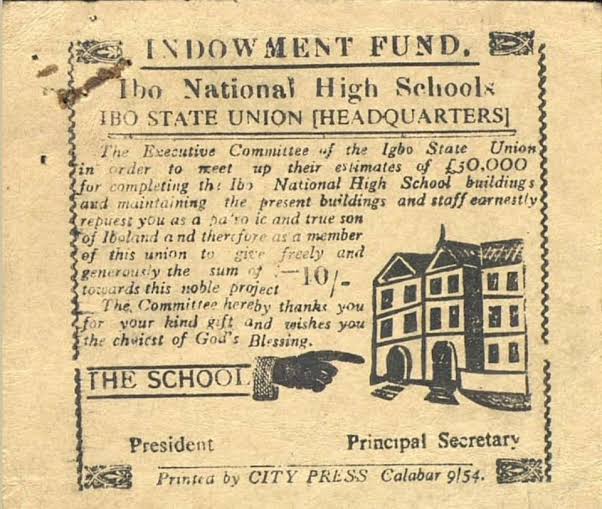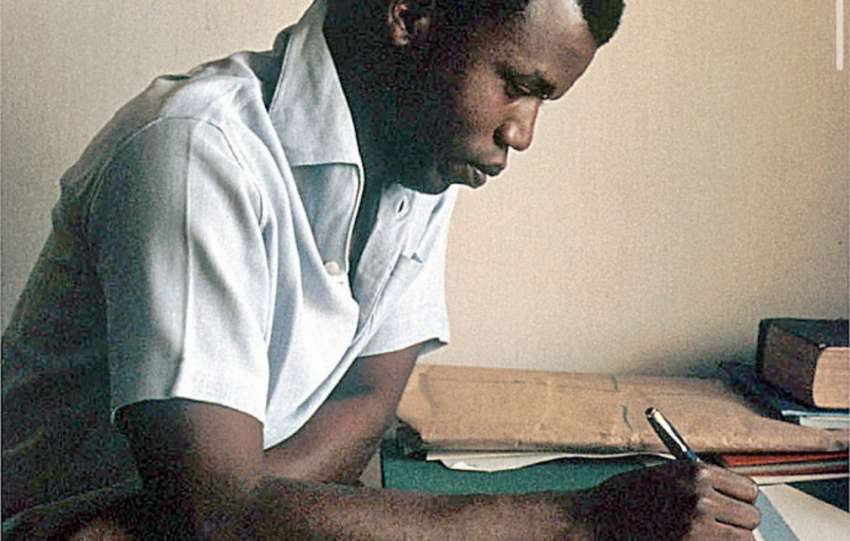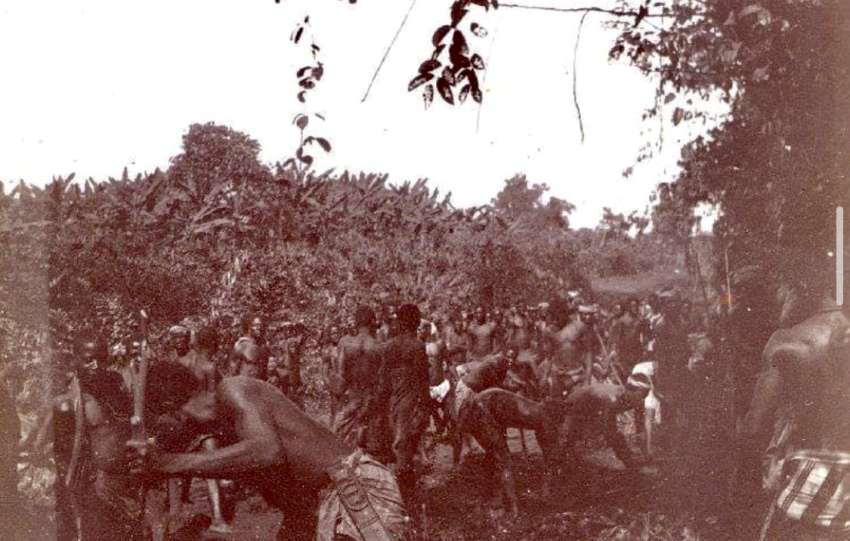
In the early 20th century, the Igbo people of Nigeria, who had long shared a common linguistic and cultural heritage, found themselves spread across different administrative regions under British colonial rule. Divided by the borders of the Western, Eastern, and Northern Regions, the Igbo people experienced disconnection despite their cultural unity. The need for political and economic cooperation among them became more apparent as colonial governance deepened it’s control over their territories. In response to these divisions and to safeguard their collective interests, Igbo leaders began to organize.
It was in the 1930s that the dream of creating a formal political body to unite the Igbo people first began to take shape. The visionaries of this movement believed that a unified front would provide the Igbo with a stronger voice in colonial governance and help protect their economic and political interests. One of the leading figures behind this effort was Dennis Chukude Osadebay, an astute politician, poet, and lawyer, who would later play a pivotal role in Nigerian independence.
Osadebay and other Igbo leaders saw the need to create a pan-Igbo organization that could represent the interests of all Igbo communities, regardless of their location in the three different regions. The result was the formation of the “Ibo State Union”, a political and cultural association dedicated to uniting the Igbo people across regional boundaries. The union sought to foster collaboration among the diverse Igbo groups, promote their welfare, and protect their interests within the colonial framework.
Initially, the Ibo State Union started with smaller, localized unions such as the “Western Ibo Union” and the “Asaba Union”, which represented Igbo communities west of the River Niger, in the present-day Anioma region of Delta State. These local unions were instrumental in providing a platform for the Igbo living outside the Eastern Region, allowing them to articulate their concerns and ensure their voices were not marginalized.
As the Ibo State Union grew, it expanded to encompass Igbo communities from both sides of the River Niger. This pan-Igbo alliance became a significant political force, working to promote education, economic development, and cultural unity among the Igbo people. The Union also supported the creation of schools, scholarships, and businesses, and became a key player in Igbo politics.
The “Ibo State Union” did not only advocate for the interests of the Igbo people within the confines of colonial rule. It also served as a rallying point for the growing nationalist movements seeking to end British colonization. The Union’s leaders, including Dr. Nnamdi Azikiwe, Dennis Chukude Osadebay, Ezeoyiza Nwaneri, Mazi Mbaonu Ejike, Chief Z.C. Obi, Alvan Ikoku, etc, aligned themselves with the broader Nigerian nationalist movement, working alongside figures like Nnamdi Azikiwe and Obafemi Awolowo to push for self-governance and independence from British rule.
However, as the Nigerian political landscape evolved after World War II, regionalism became more pronounced. The “Ibo State Union” found itself at odds with the emerging political structures that favored regional loyalty over ethnic unity. The creation of political parties along regional lines, such as the “National Council of Nigeria and the Cameroons (NCNC)”in the East and the “Action Group (AG)” in the West, meant that the dream of an all-encompassing Igbo unity under the Ibo State Union was increasingly challenged.
Despite these challenges, the “Ibo State Union” remained a significant cultural and political institution until the late 1950s when political parties became the dominant force in Nigerian politics. The Union’s legacy, however, lived on. It played a vital role in establishing a sense of Igbo identity and unity that transcended regional divisions, and its efforts in promoting education and economic development left a lasting impact on the Igbo people.
In the post-colonial era, as Nigeria became an independent nation, the ideals of the “Ibo State Union” continued to inspire movements for unity and development among the Igbo people. The concept of Igbo self-determination and unity, championed by leaders like Osadebay, would later influence calls for the creation of an Igbo-dominated state, such as the Anioma movement west of the Niger.
The story of the “Ibo State Union” is one of a people determined to unite despite external divisions, a people with a deep sense of identity and a vision for a future where their voice would be heard in the affairs of their nation. It stands as a testament to the resilience and unity of the Igbo people both East and West of the Niger during a period of significant change in Nigeria’s history.
Reference:
Isichei, E. (1976). The Igbo people. Heinemann.
Nnoli, O. (1978). Igbo nationalism and the Nigerian crisis. Enugu: Fourth Dimension Publishers.
Ugwu, A. (2009). Igbo history and culture. Onitsha: Africana Publishers.



